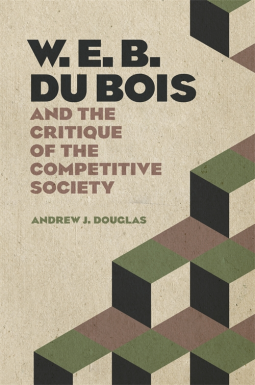
W. E. B. Du Bois and the Critique of the Competitive Society
by Andrew J. Douglas
This title was previously available on NetGalley and is now archived.
Send NetGalley books directly to your Kindle or Kindle app
1
To read on a Kindle or Kindle app, please add kindle@netgalley.com as an approved email address to receive files in your Amazon account. Click here for step-by-step instructions.
2
Also find your Kindle email address within your Amazon account, and enter it here.
Pub Date Aug 15 2019 | Archive Date Jul 02 2019
Talking about this book? Use #WebduBoisAndTheCritiqueOfTheCompetitiveSociety #NetGalley. More hashtag tips!
Description
Competition and competitiveness are roundly celebrated as public values and key indicators of a dynamic and forward-thinking society. But the headlong embrace of competitive market principles, increasingly prevalent in our neoliberal age, often obscures the enduring divisiveness of a society set up to produce winners and losers. In this inspired and thoughtfully argued book, Andrew J. Douglas turns to the later writings of W. E. B. Du Bois to reevaluate the very terms of the competitive society.
Situating Du Bois in relation to the Depression-era roots of contemporary neoliberal thinking, Douglas shows that into the 1930s Du Bois ratcheted up a race-conscious indictment of capitalism and liberal democracy and posed unsettling questions about how the compulsory pull of market relations breeds unequal outcomes and underwrites the perpetuation of racial animosities. Blending historical analysis with ethical and political theory, and casting new light on several aspects of Du Bois’s thinking, this book makes a compelling case that Du Bois’s sweeping disillusionment with Western liberalism is as timely now as ever.
Advance Praise
"Andrew Douglas's book is an excellent contribution to a growing body of scholarship engaged with the complexity and evolution of Du Bois's political thought. His treatment of Du Bois's debates with Abram Harris and other black Marxists, his analysis of Du Bois's philosophy of education, and his account of Du Bois's relevance to contemporary discussions of neoliberalism are all first-rate."
—Robert Gooding-Williams, author of In the Shadow of Du Bois: Afro-Modern Political Thought in America
"Brilliant. Absorbing. Essential reading. These words capture Andrew Douglas's marvelous book on W.E.B. Du Bois's political thought, a book focused on the Du Bois of the 1930s, a Du Bois committed to shattering the long-held American Assumption that competition should be a human goal. What Douglas reveals is Du Bois's nuanced endorsement of cooperation, not competition, as a guiding principle of black politics. Cooperation, Du Bois argues, enables transformation of the very fabric of the American republic and the modern world writ large. Readers shall learn about genres of black radicals, the centrality of black colleges as a site of Du Boisian critique, and the afterlives of Du Bois's call for cooperation at home and abroad. The lessons of Du Bois's Depression Era vision of the demos, Douglas demonstrates, are necessary now more than ever."
—Neil Roberts, author of Freedom as Marronage
Available Editions
| EDITION | Other Format |
| ISBN | 9780820355092 |
| PRICE | $49.95 (USD) |
| PAGES | 168 |



